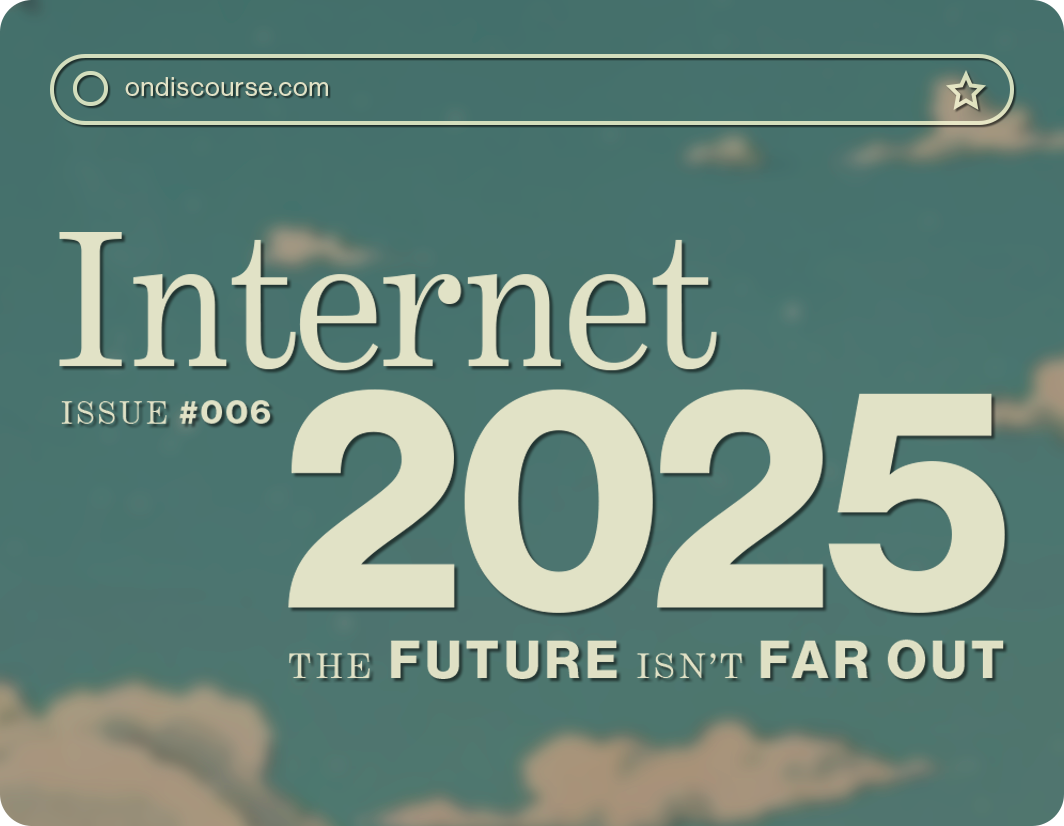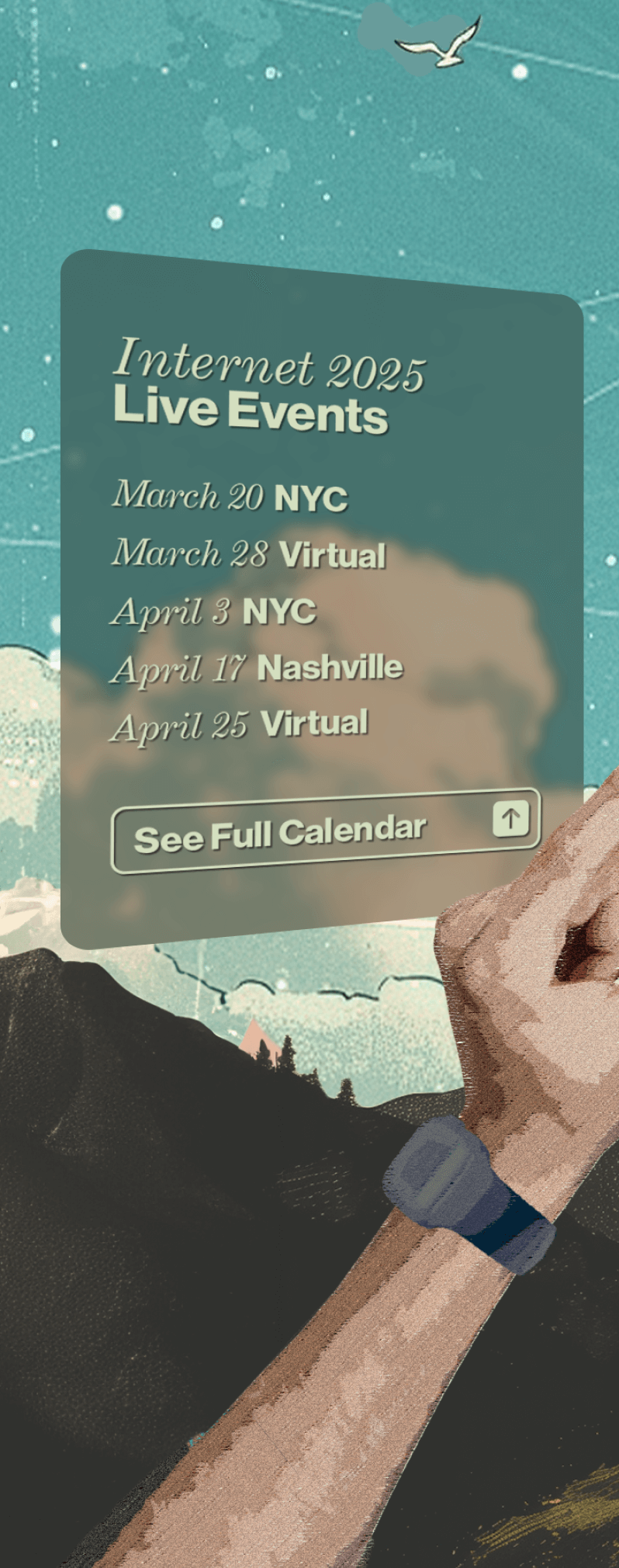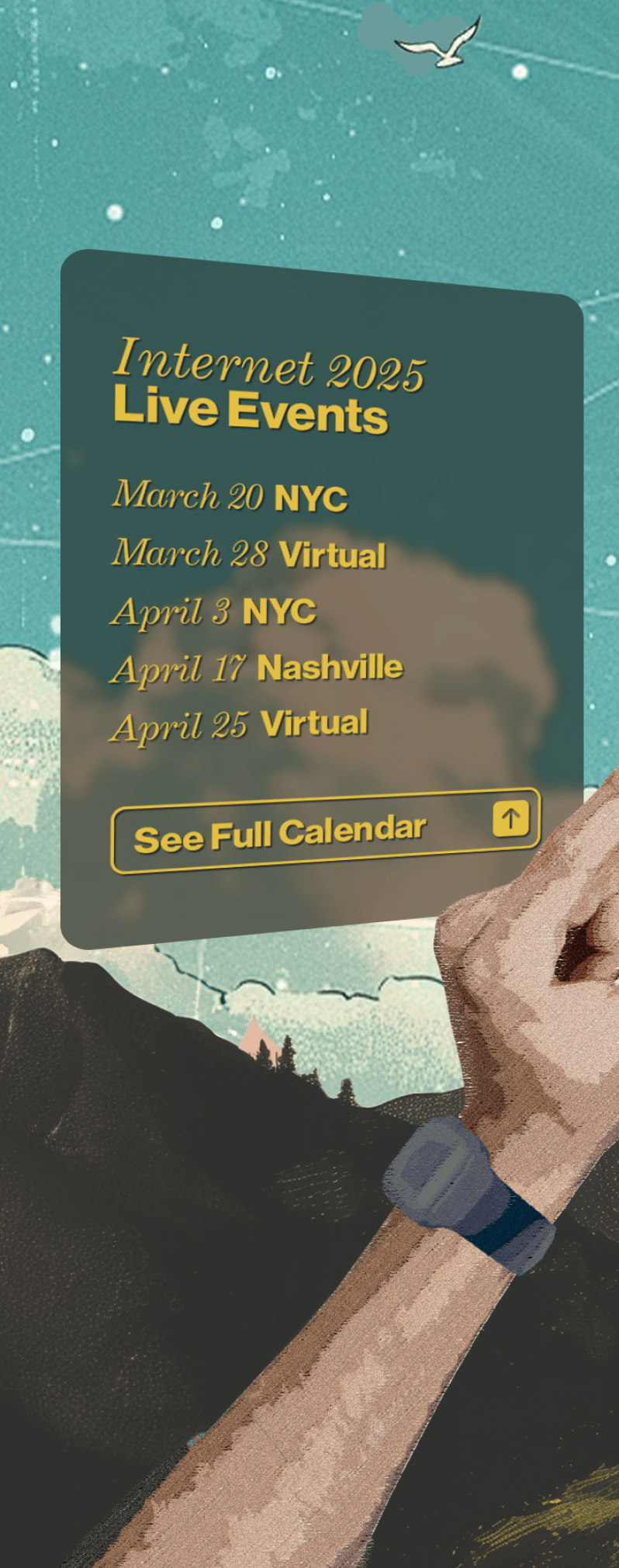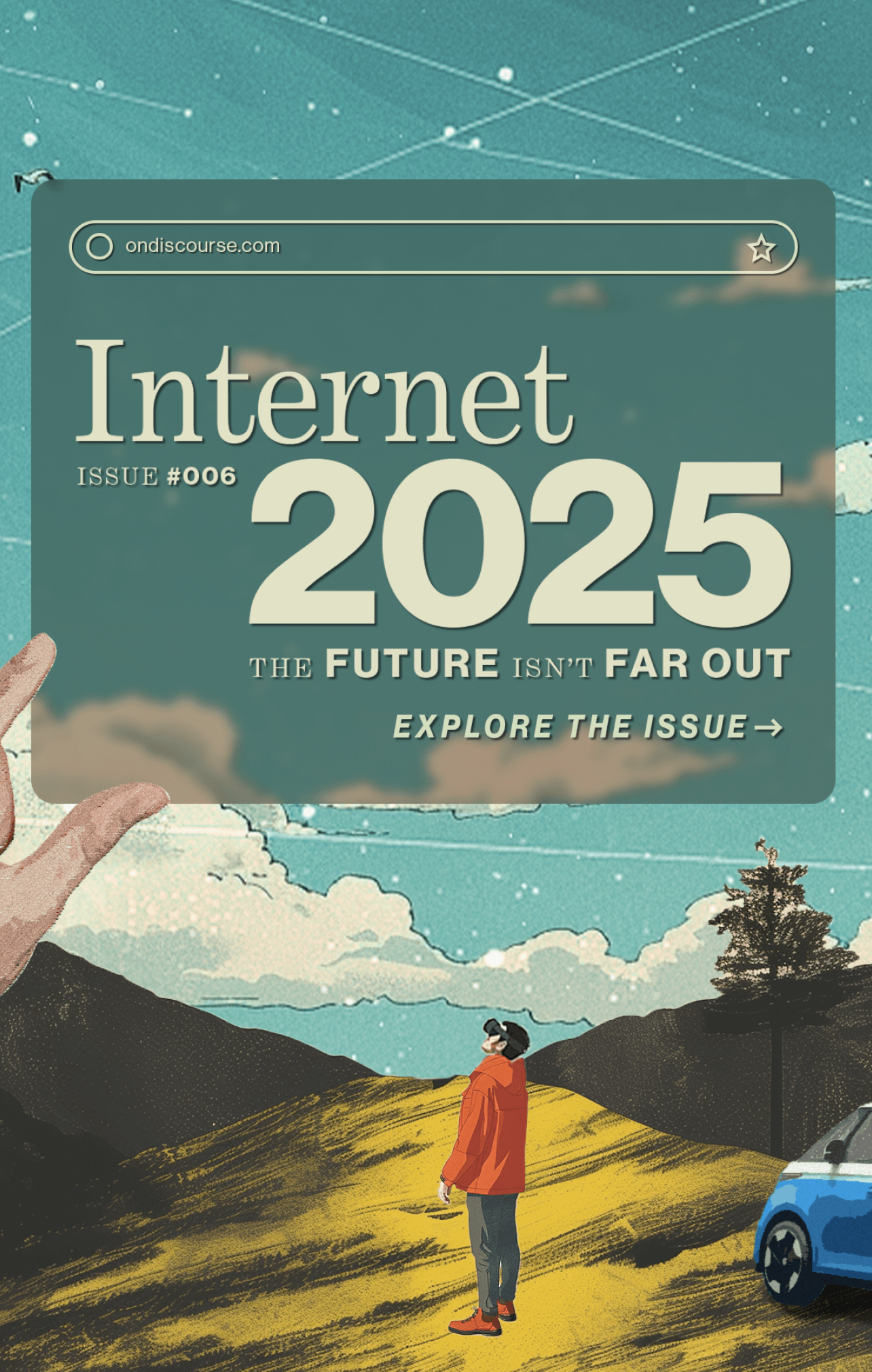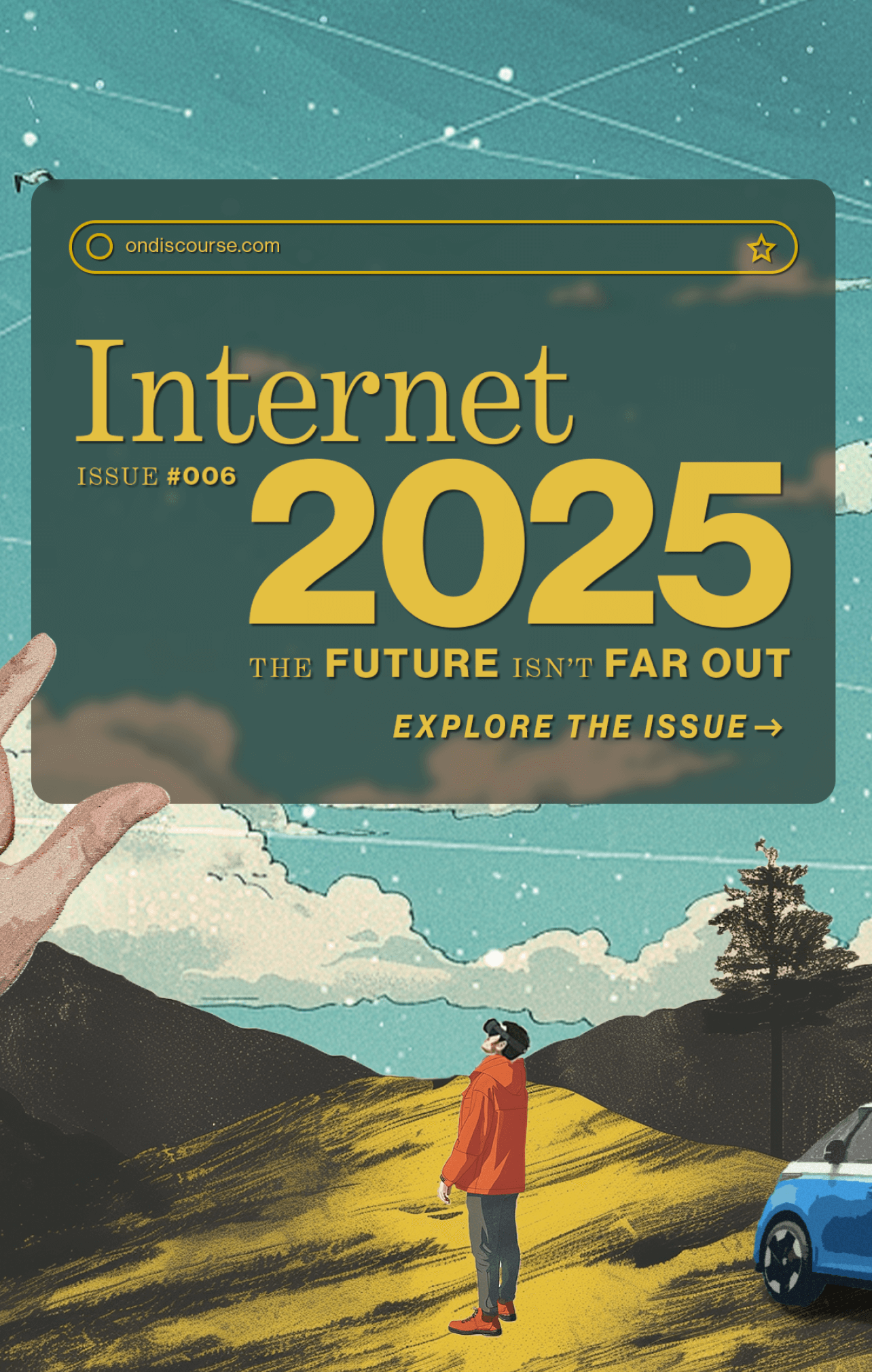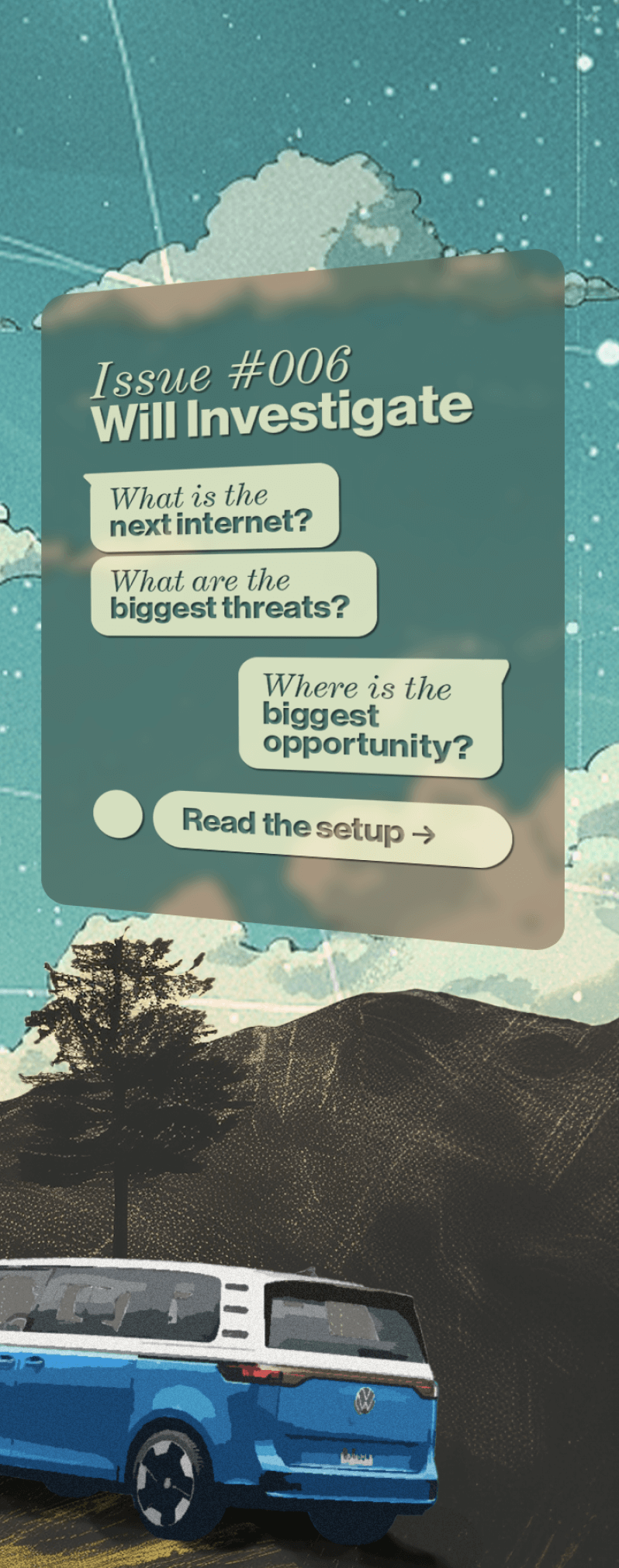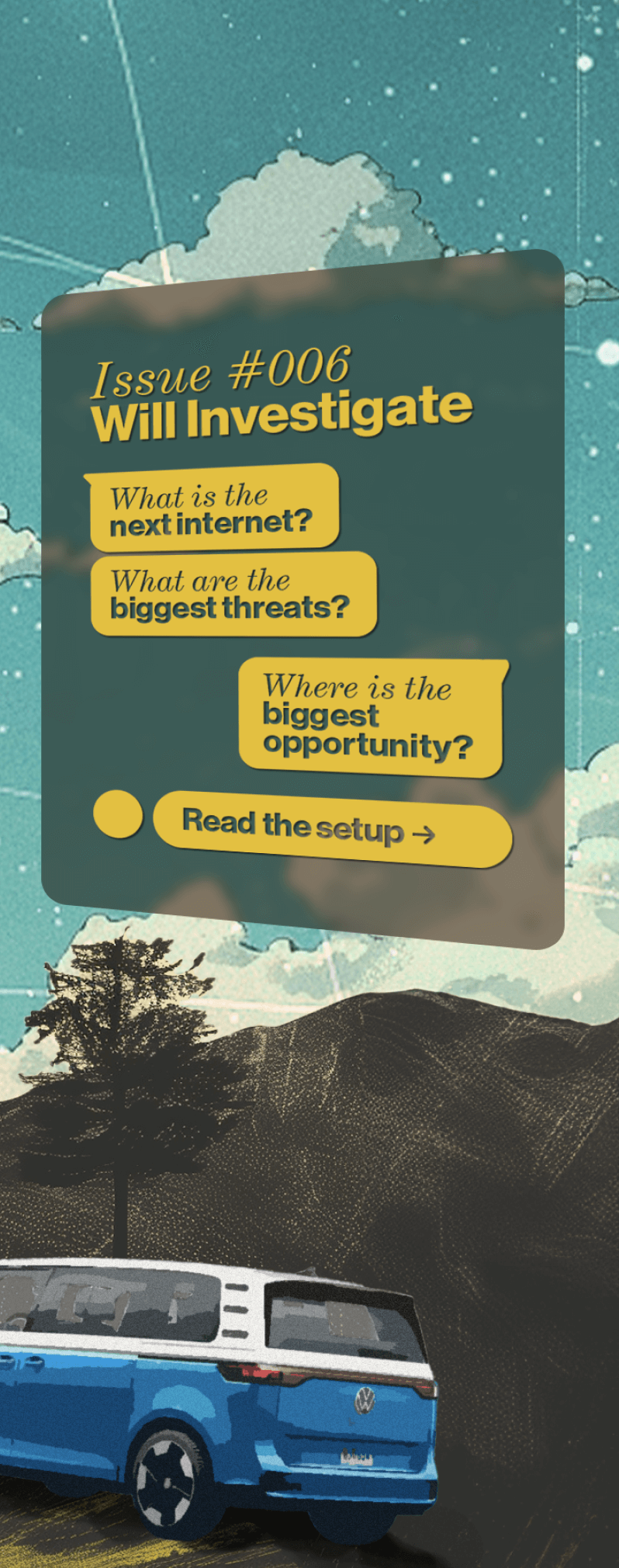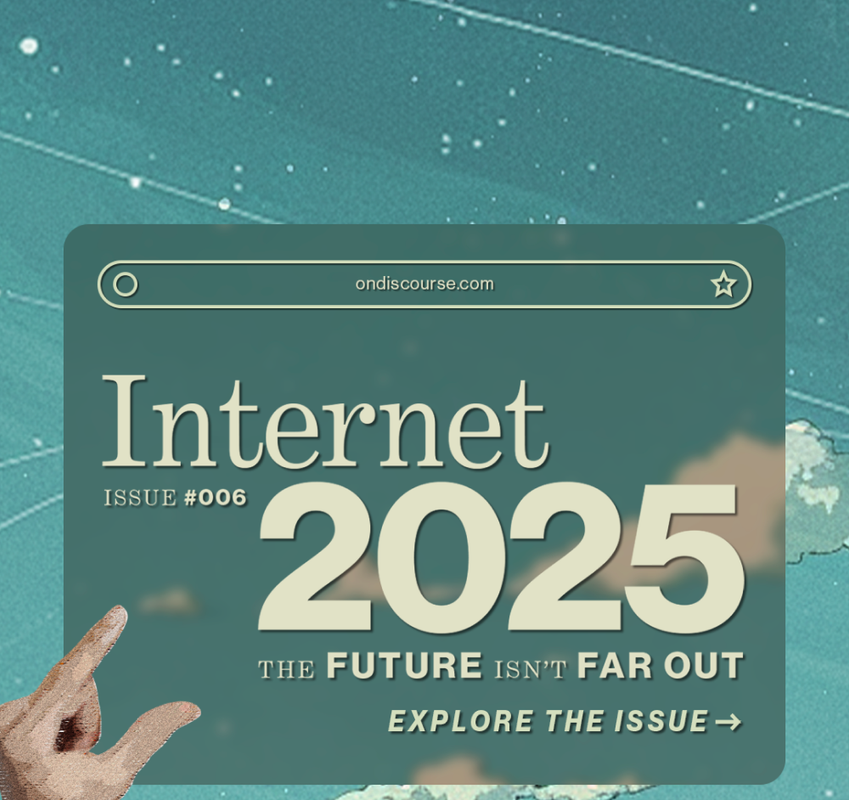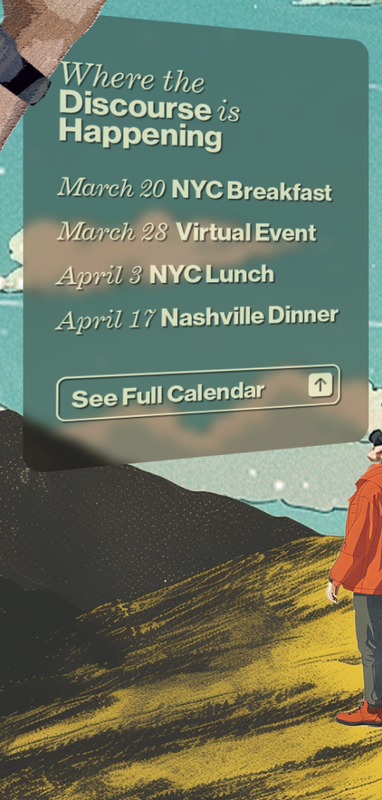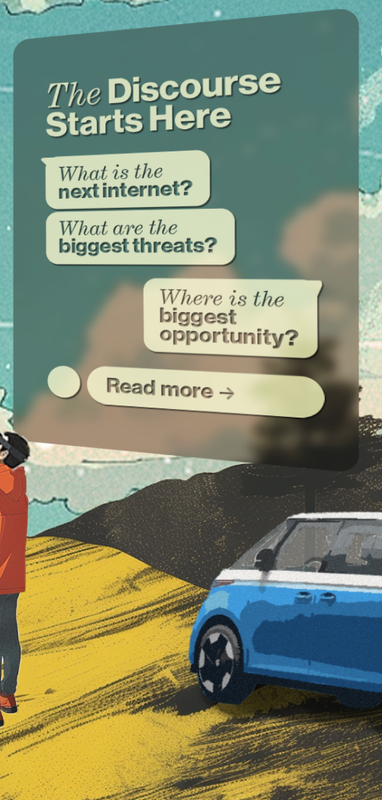AI
Logic
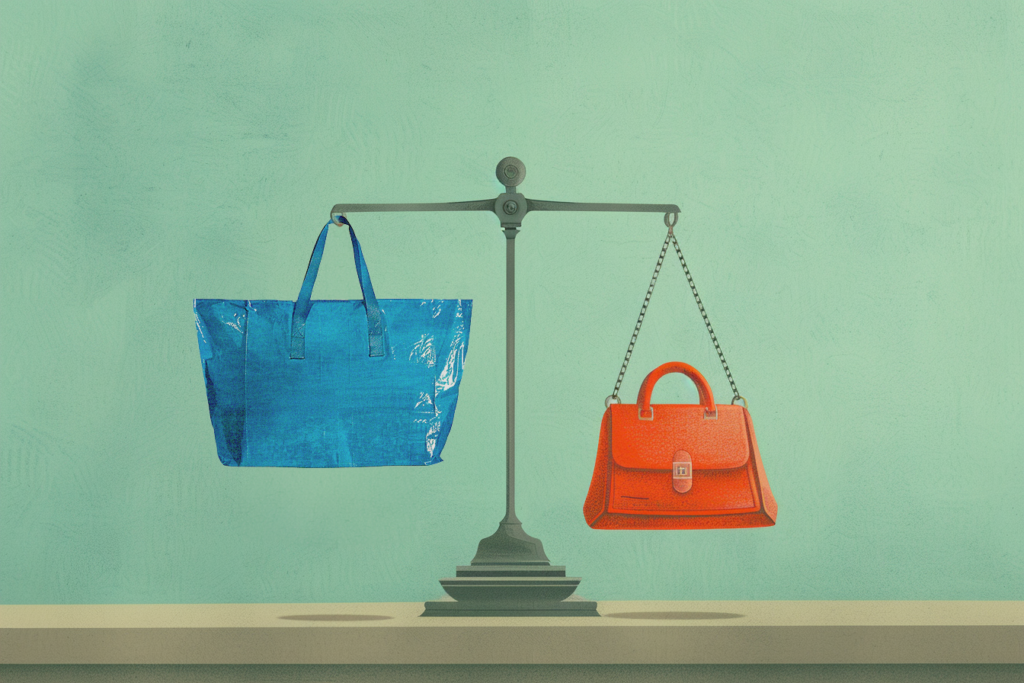
Editor’s note: We have been circling a version of this perspective for a long time; we know that customer/brand relationships are bound to change, and we also know that AI is going to facilitate that relationship, but then we don’t know what happens next. Suddenly James Cooper swooped in and laid it all out for us in a way that sort of blew our minds. We especially loved his extended hall of mirrors metaphor.
This post was written by human James Cooper and narrated by AI James Cooper (powered by Wondercraft.ai).
Much has been written about how AI might affect the branding industry. Will Chat GPT and Sora (et al) put branding creatives out of a job? This is a means of production debate, which is obviously interesting but not actually meaningful. The production and media spend of advertising is consistently stuck at 2% of US GDP; it always hovers around that. In the production debate, AI is going to compete with some traditional creators, but it won’t change the underlying spend. There is a bigger debate about AI to be had.
The real question to ponder centers on the relationship between AI and brands: how can they co-exist? For this piece I’ll look at two areas that if I were running a brand I’d want to have a handle on before Internet 2025 is upon us. Firstly what AIs or LLMs think about brands and secondly how brands might behave more like AIs.
Brand Magic
The richest person in the world is not a tech bro. Bernard Arnault, the CEO of LVMH, and current richest person on the Forbes List, is about as far away from tech as you can get. His business is persuasion and in 2023 he persuaded consumers to fork out €86.2 billion for bags and booze. We may all talk about the magic of AI but LVMH is more than magic; it is a fucking miracle.
How could we explain the value of a Louis Vuitton bag to an AI? Let’s go deeper: how can an AI be persuaded to recommend a Louis Vuitton bag (or a sip of Moet) over something 10x cheaper? Can we trick an AI? Make no mistake, LVMH is trickery, it is smoke and mirrors – beautifully crafted, palatial mirrors, fit for French royalty, the sun gods themselves, but still, and at the end of the day, mirrors. Can the processing power of an LLM appreciate the trick?
We can train an AI to speak like a human but can we train it to have taste? Should we? Would that taste be modeled on existing assumptions that are correct or incorrect? Are we not better off just being rational about everything? The brains behind AIs want them to be more human, but humans have irrational desires and emotions. Everyone knows smoking kills you but we still do it for many illogical reasons – nervousness, social acceptance, and because, if we’re being honest, it will always be kind of cool.
It is important to ask these questions because I assume that AI will take over a lot of the touchpoints of the future internet. It will either be the gatekeeper itself or power the gatekeepers. To put it another way, we won’t be searching Google for a series of links; we will be asking an AI agent to provide direct answers, recommendations, and actions. If I were Bernie I’d be spending some of the $400 billion value of his business figuring out how to persuade these future kingmakers that it really is worth paying thousands for an LV monogrammed bag that functions exactly the same as a one-dollar IKEA bag.
How can an AI be persuaded to recommend a Louis Vuitton bag over something 10x cheaper? Can we trick an AI?
The Battery Bunny
Ok, you might say, luxury brands are weird, they don’t adhere to normal supply and demand or price elasticity like a normal product. If we can’t explain why humans fall for this stuff, what hope does an AI have? Let’s look at something more mundane. In 2020, Berkshire Hathaway bought Duracell from P&G for around $6.5 billion. Warren Buffet obviously believed the brand was worth something. Could he explain that something to an AI scraping the web for the ‘best’ battery?
Could an AI understand the value of the coppertop branding that has been prevalent for over 100 years? How about the Duracell bunny? WTF does a bunny have to do with anything? For a human (for some humans, enough humans, Duracell’s 2023 revenue was $2 billion), it’s everything. All those details come into play in the decision-making process. If you’re buying batteries for your kid’s toy, you want them to last. You want it to be the ‘best’ because it’s a reflection of you. If the batteries conk out after five minutes, who gets the blame? So you pay the premium as insurance.
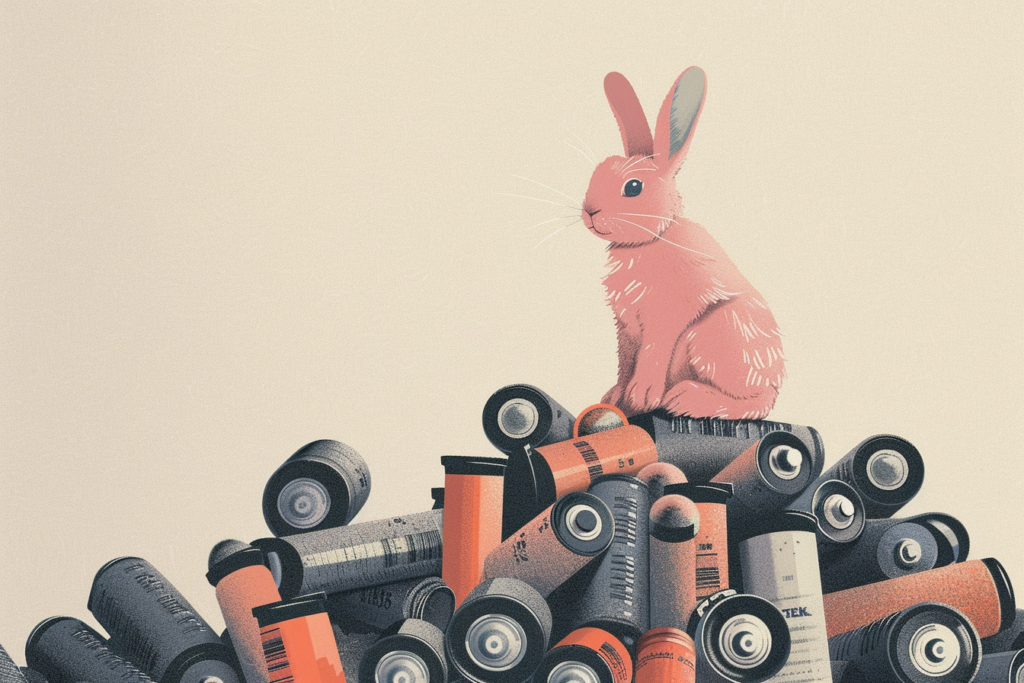
Could Warren Buffet explain Duracell’s worth to an AI scraping the web for the ‘best’ battery?
As branding experts, there is a really interesting challenge for us ahead. How do we use all the tricks at our disposal, the techniques that we have used on generations of humans, to persuade an AI that Duracell is worth more than Amazon basic batteries? We can assume that the Amazon AI may well push their own batteries but there is also a healthy markup on Duracell’s that they can’t financially ignore. That’s why all supermarkets still sell brands as well as their own labels.
Can we do research groups on AIs? Put them in a room, give them some cookies, and ask what they think about Brand A vs Brand B? (editor’s note: maybe!) I believe there will be an equivalent to that somewhere down the line. That thing about AI taking some jobs but creating new ones is 100% true.
AI Brand Brain
The second area that is worth thinking about is how a brand might act more like an AI. My last full-time job was as head of creative at the New York start-up studio Betaworks. We made GIPHY and the number-one mobile game Dots. Among the other products we made was Poncho, a cat that gave you personalized weather forecasts with a smile. For a time Poncho was the most popular bot on Facebook Messenger. We launched on stage with the Zuck, won $2 million in funding from Apple TV’s Planet of the Apps, and had Gwyneth Paltrow as an investor. We were hot.
People loved Poncho because it was a brand and a bot (early AI) at the same time. My vision for Poncho was what I call a Brand Brain. The idea being that it could exist across platforms. For example, it could send a text in the morning with the weather knowing that you look at your phone first. Then, just before you left home, an update on your smart speaker. (editor’s note: sounds like a superformat?) When you were at work it knew to slack you with a revised forecast, and so on. It has context, it knows who I am.
How can an AI be persuaded to recommend a Louis Vuitton bag over something 10x cheaper? Can we trick an AI?
Context is the Holy Grail
I liked Michael Olaye’s piece about a smart TV knowing what I mean by saying I want to watch ‘the game’. This is a hardware example but I think there is a massive opportunity for brands to behave like a cross-platform, contextualized Siri or Alexa. Where Siri and Alexa fall down is that they are sold on knowing everything, but they can’t – same with AI. But a brand brain could be a trusted resource on a certain narrow subject, for example running. It could update me on how my friends are doing – are they going faster than me? What races are selling out? Training schedules, weather updates, calorie intake, sleep, rest and recovery data, shoe deals, and so on.
As Saneel said, the bigger brands have better data and more touchpoints, ensuring that brands like Nike or Adidas are well placed to do this. But unlike Saneel, I believe an upstart brand focused on getting this service right could easily outsmart and outdeliver an incumbent brand. That could be a clothing brand, a tech brand like Strava or Garmin, or maybe in the football game example it’s a sports betting brand. Or perhaps this could be an opportunity for a media brand to flex its muscles.
The technology that powers these AIs that act as recommendation engines will be sold to brands, agencies, and media owners. It’s a long-term play but just like the retail brands that got digital or mobile before the others, there will be an advantage to using AI technology in this way.
Hocus Pocus?
AI will affect everything to do with branding. The production part is the lowest hanging fruit right now, but I believe there are plenty of opportunities for us branding experts to think creatively about how we might use AI in a different way that helps us do what we have been doing since time began: create value out of nothing. That’s magic.

